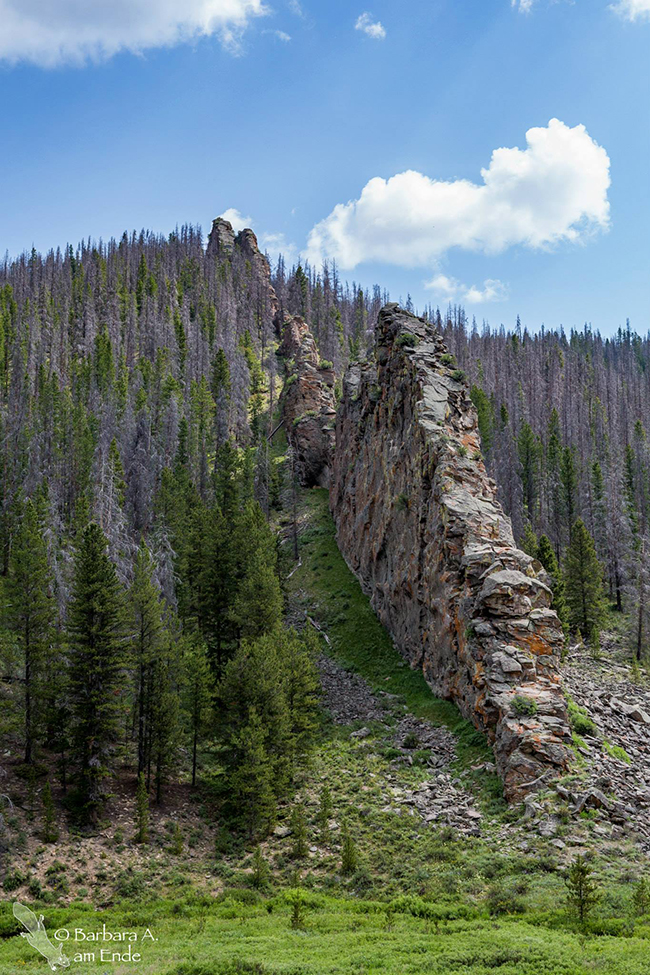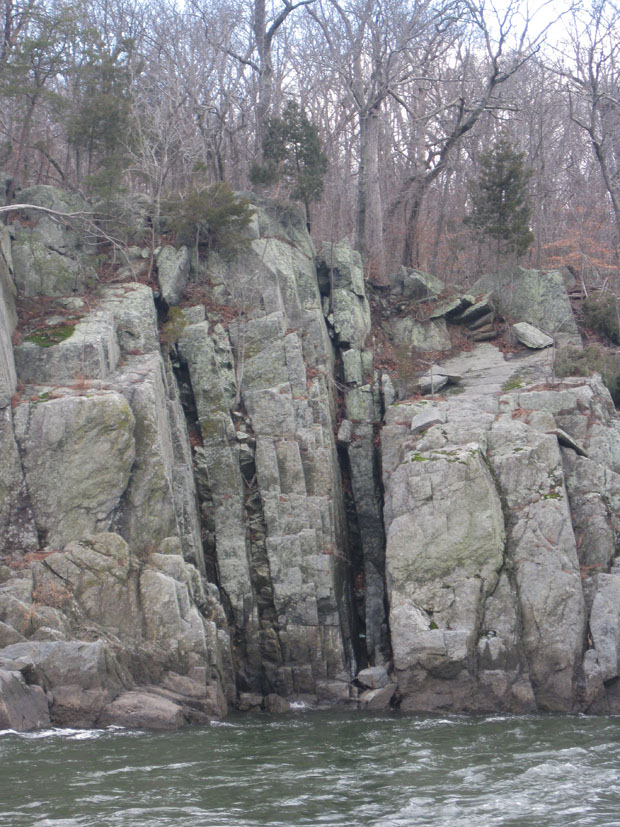My friend Barbara am Ende sent along this lovely image of a dike in Colorado:

Here’s the site. You can see the dike in Google Earth.
Dikes are fractures, filled with molten rock, which then cools and solidifies, sealing the crack shut. In this case, once it got uplifted to Earth’s surface and exposed, the dike rock is tougher (more resistant to weathering) that the older rock it cut across. As a result is weathers “proud” of the landscape. It is being eroded at a rate slower than the rock on either side of it. This isn’t necessarily the case – not all dikes weather out like the Great Wall of China. Along Mather Gorge (Potomac River, downstream of Great Falls), a quartet of lamprophyre dikes weather away negatively, resulting in tabular recessed features on the landscape, which is otherwise dominated by metagraywacke:

And here’s another negatively-weathering example: basalt (later metamorphosed to lower greenschist facies) intruding granite on Old Rag Mountain, Shenandoah National Park, Virginia:

Thanks for sharing, Barbara!
